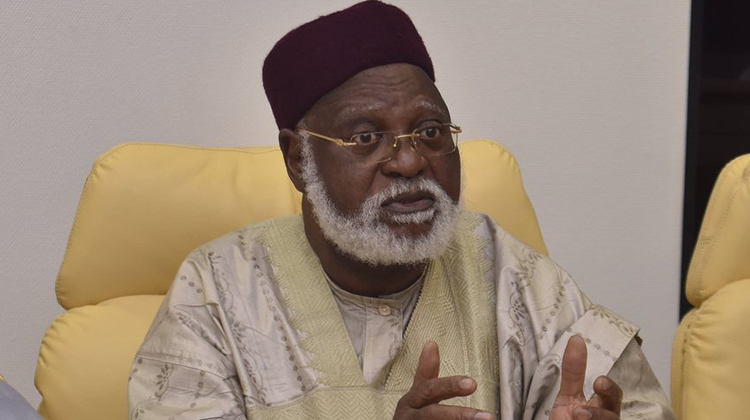A former Head of State, Gen. Abdulsalami Abubakar (retd), said there are over six million illegal weapons In circulation across Nigeria.
Abubakar, who is also the chairman of the National Peace Committee (NPC) stated this at a dialogue session of the committee with key stakeholders in Abuja on Wednesday.
He said the proliferation of weapons has heightened insecurity in the country, adding that its responsible for over 80,000 deaths and close to three million internally displaced persons.
The meeting was attended by traditional rulers, including the Sultan of Sokoto, Alhaji Muhammadu Sa’ad Abubakar III; John Cardinal Onaiyekan; Ekiti State governor and chairman of the Nigerian Governors Forum (NGF), Kayode Fayemi; Plateau State governor and chairman of the Northern Governors Forum, Simon Lalong; religious leaders, the service chiefs, top military brass, police and other security agencies.
The former Head of state added that the challenges facing the country is not only insecurity in the narrow sense of the military definition but that it has assumed an all encompassing nature.
According to him, these challenges include, the Boko Haram insurgency, banditry, kidnapping, increasing poverty, calls for balkanization of the country from different quarters, threat of hunger arising from insecurity that farmers have faced and continue to face, the increasing sense of collective despair and despondency among the populace among others.
“The proliferation of all calibre of weapons not only in our sub-region in general and in Nigeria in particular is worrying. It is estimated that there are over six million of such weapons in circulation in the country.
“This certainly exacerbated the insecurity that led to over 80,000 deaths and close to three million internally displaced persons,” Abubakar said.
In assessing the security situation, Abubakar said that the security forces are not just over stretched but under strength and funded, stating that the security agencies can perform better with more sophisticated weapons, equipment and more funding.
“We believe Nigeria must find a way out of these problems. Our hope is that perhaps among us, by listening to your different perspectives, we can begin to build up confidence among our people so that we can hold together.
“So our hope is that we shall not only share our collective lamentations about the current situation, bit propose some concrete suggestions that can point the way forward, suggestions that can inspire more confidence among our people and ensure that our country remains one,” he said.
